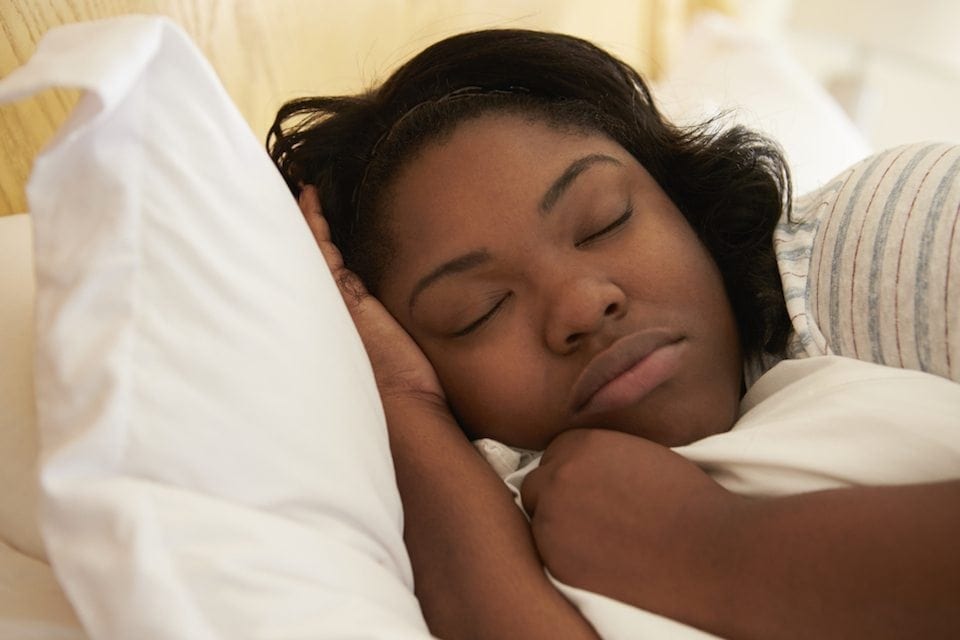It’s 9:30 p.m. and you just got home from work. You should be in bed by 10:30 p.m. if you want to make your 7:00 a.m. workout. Thing is, you’re wide awake. Plus, there’s a whole new Orange is the New Black season you haven’t gotten around to watching, and you just can’t stop clicking “next.”
Sleep deprivation is the new norm, but according to star functional medicine physician (and Gwyneth’s go-to doc) Dr. Frank Lipman, it affects your health much more deeply than just causing morning meeting drowsiness.
“Your cells repair themselves more rapidly at nighttime,” Dr. Lipman says. “The body produces higher levels of human growth hormone, which promotes cellular renewal, and your digestive system gets a break.” So if you skip it, you skip those crucial processes—and it doesn’t stop there. “Research says that sleep deprivation leads to increases in grehlin, the hunger hormone, and decreases in leptin, the hormone that tells the brain, ‘I’m full,’” Dr. Lipman explains, meaning less sleep equals more overeating. “You’ll also look to sugar, processed carbs, and caffeine to get more energy.”
Exhausted yet? Dr. Lipman recommends the standard eight hours per night, and his number one strategy for making it happen is setting a schedule, a plan he details in August’s Healthiest Year Ever tip.
A regular bedtime will get you into a good-sleep rhythm, he says, and so will these five additional simple tactics you can use to increase your time on the pillow. Yes, it definitely means less Netflix—but also more overall happiness, trust us.
1. Set an electronic sundown “An hour before you go to bed, stop sitting in front of your computer or TV and switch off all other electronic devices,” Dr. Lipman says. “They are too stimulating to the brain and interfere with your sleep.”
2. Keep the room dark This is not good news for city dwellers, but “our bodies need complete darkness for production of melatonin, the important sleep hormone,” he explains. “Cover all the lights of any electronic device and use dark shades or drapes on the windows if they are exposed to light.” If you’ve got one too many local streetlamps, invest in an eye mask.
3. Break up with Starbucks “Caffeine is a powerful stimulant with a typical half-life of seven hours, which means that half of it is still coursing through your veins seven hours later,” he says. Yikes! So you’re not crazy, that late afternoon latte really is keeping you up. “Caffeine blocks sleep neurotransmitters, over stimulates the adrenal glands, and throws off your circadian rhythm.”
4. Cut back on boozing It may seem counter-intuitive considering how sleepy a glass of wine on Friday night makes you, but “in general, those with problems sleeping should avoid alcohol, as it can be as disruptive to the body’s sleep rhythms as caffeine,” Dr. Lipman cautions. “While it has an initial sleep-inducing effect, as the body breaks it down, it can lighten and disrupt sleep by causing frequent and early awakening.”
5. Set the mood Don’t expect to go from full speed to passed out in the blink of an eye. “Turn down the bedroom lights an hour or so before lights out. Meditate or listen to calming classical music at low volume,” he suggests. “Take the time to slowly ‘power-down’ your mind and body so you can drift happily into the good sleep you deserve.” —Jamie McKillop for Well+Good
For more information, visit www.drfranklipman.com, and check out the Healthiest Year Ever, presented by Athleta.
How much shut eye do you get nightly? Think you need more? Share in the comments below!





11 Responses
Great advice MFP. I’m going to pass this on to my friends.
Check out the “sleep bot” app. It helps track your sleep and wakes you up more naturally.
a a comfy bed and pillows can really make a difference too.
I found I need a good physiological reason to sleep — lots of activity during the day. Exercise, walking, housework etc. … Make the body work and it will want to rest!
I concur… I’ve always found that the more physically active I am during the day, the better quality sleep I have at night…
Suggestions for those working shift patterns that include nights, evenings and days would be helpful. Thanks
The only sleep problem I have is a 7 month old that still wants to eat once to twice a night and yes she gets lots of cereal at dinner.
all well.. but when you have a hubby coming in at all hours it does not help..x
I can definitely relate. When I’m sleep deprived, I can FEEL my body craving simple sugars as an energy replacement…. I’m just hungry out of being tired. Weird, right? It messes with my rythm.
Feeling that today after a work crisis kept me working past 2am! 🙁
Because of my husband’s work schedule we get up at 04:30 AM on workdays and find it hard to get in bed before 09:30…..sleep comes easy, getting up is hard 🙁
I rotate shifts every week…1rst shift to 2nd shift to 3rd shift. Plus I have a disabled son who needs rolled over several times during the night. Makes it tough!